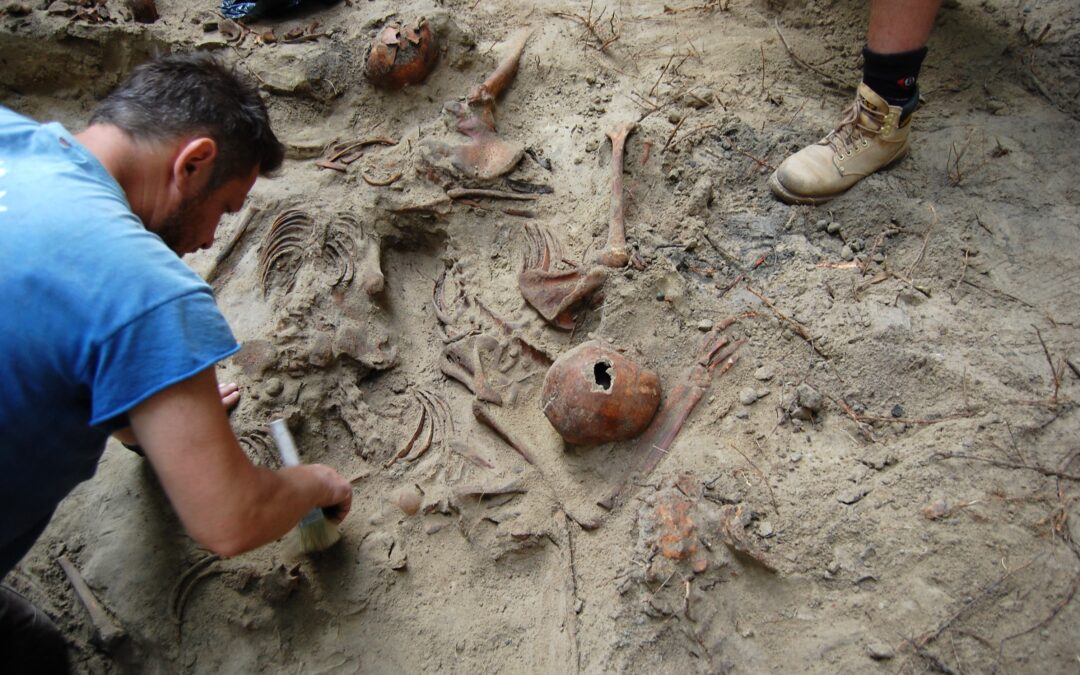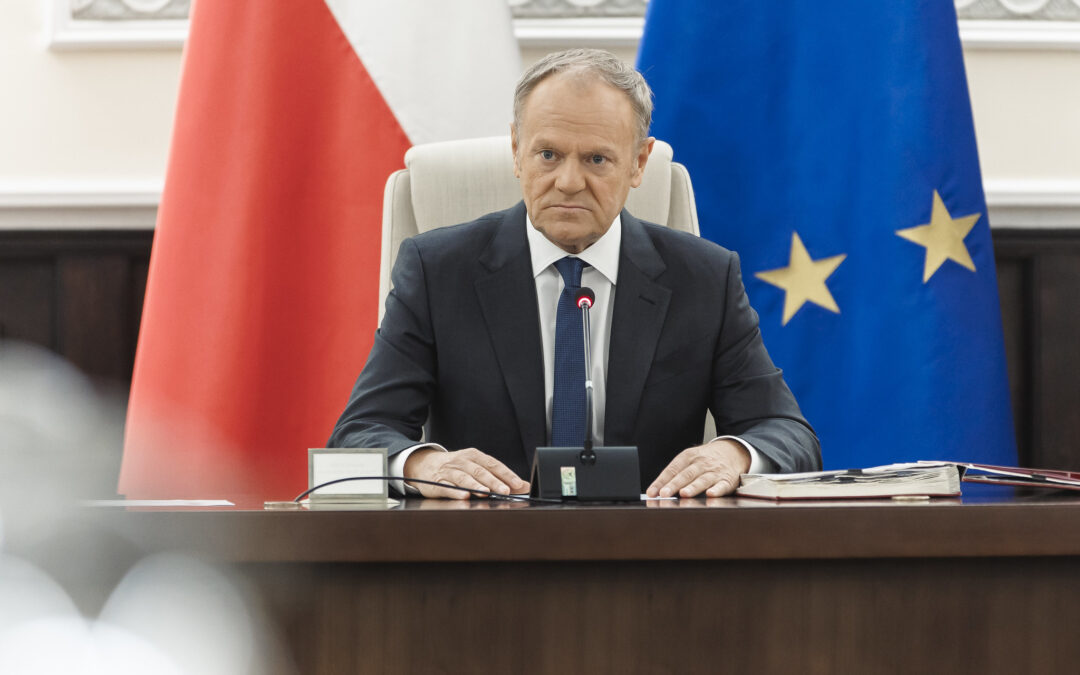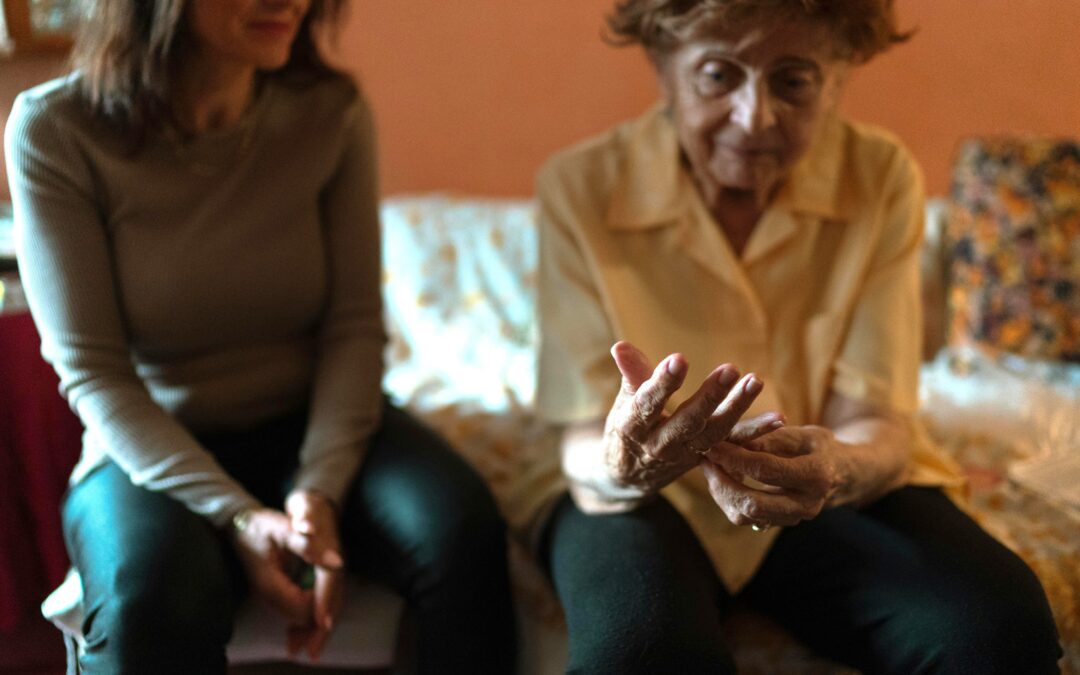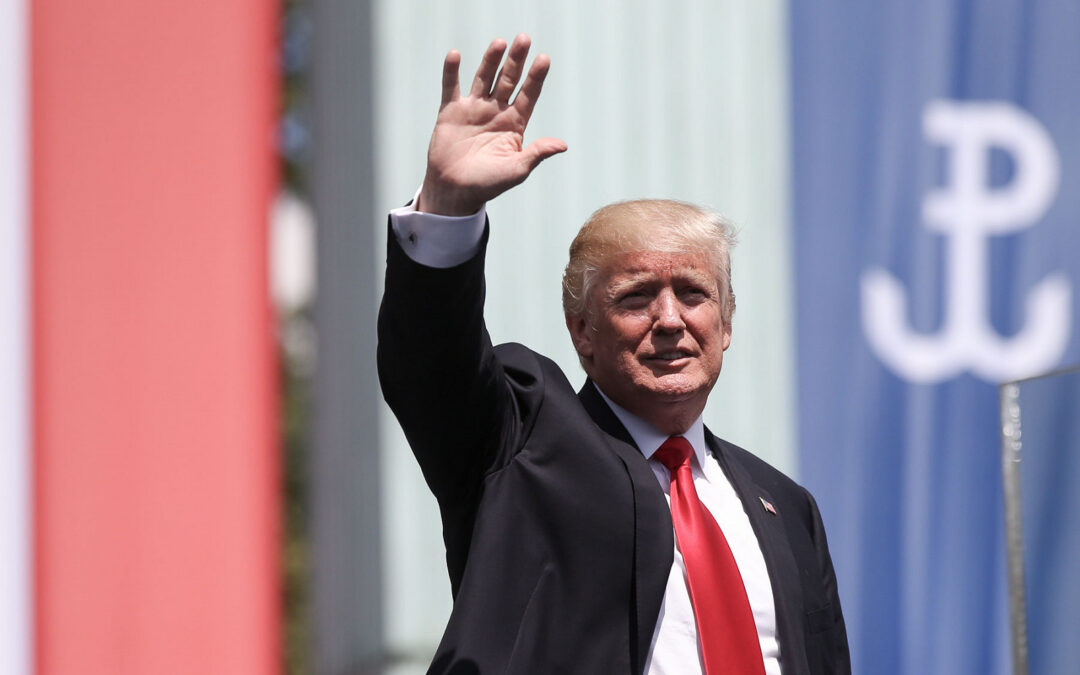Keep our news free from ads and paywalls by making a donation to support our work!

Notes from Poland is run by a small editorial team and is published by an independent, non-profit foundation that is funded through donations from our readers. We cannot do what we do without your support.
A Polish government minister has confirmed details of the first of a planned series of exhumations in Ukraine of the remains of ethnic Poles massacred by Ukrainian nationalists during World War Two.
The lingering legacy of the Volhynia massacres, in which around 100,000 Poles – mostly women and children – were killed by the Ukrainian Insurgent Army (UPA), has long soured relations between the two countries.
But last November, the Ukrainian and Polish foreign ministers announced “progress” towards resuming exhumations, which have been banned by Ukraine since 2017. Then, last month, Polish Prime Minister Donald Tusk revealed that a decision had been made for the exhumations to go ahead.
🎥Mam nadzieję, że w kwietniu ruszą ekshumacje ofiar Rzezi Wołyńskiej na Ukrainie – oświadczyła w Popołudniowej #RozmowaRMF @WroblewskaHann minister @kultura_gov_pl pic.twitter.com/pvagV2WjgU
— RozmowaRMF (@Rozmowa_RMF) February 4, 2025
Speaking to broadcaster RMF on Monday this week, Hanna Wróblewska, the minister of culture and national heritage, confirmed that a request by the Freedom and Democracy Foundation, a Polish NGO, to exhume a mass grave in Puzhnyky (known as Puźniki in Polish) had been accepted.
The site is a depopulated former village in what is now western Ukraine but which, before the war, was part of Poland. Ukrainian nationalists are believed to have killed between 50 and 135 Poles there on the night of 12/13 February 1945. Later, the surviving population was resettled in postwar Poland.
The Freedom and Democracy Foundation has already conducted preliminary work in Puzhnyky, where, in 2023, it discovered a mass burial pit. Wróblewska told RMF that exhumations there would now likely begin in late April and would be conducted by both Polish and Ukrainian experts.
On Thursday, RMF reported that the Polish team will be led by Andrzej Ossowski, a professor of forensic science at the Pomeranian Medical University (PUM) in Szczecin, and will include anthropologists, archaeologists, forensic medicine specialists and a geneticist.
The researchers will seek to determine the age, sex and cause of death of skeletons buried in Puzhnyky, including whether they died violently. DNA samples will be taken for comparison with material already collected by PUM from descendants of former residents of the village.
Work at the site is expected to last around one month, after which it is planned to give the victims a proper burial and commemoration. Last month, Maciej Dancewicz, deputy head of the Freedom and Democracy Foundation, said they would be laid to rest at the village’s former cemetery, reports news website Interia.
A mass burial pit containing the remains of ethnic Poles murdered by Ukrainian nationalists during a series of massacres in WW2 has been found in Ukraine.
It is the first time in nine years that such a discovery has been made https://t.co/Wygh8IWlDS
— Notes from Poland 🇵🇱 (@notesfrompoland) October 27, 2023
Some in Poland have expressed scepticism about whether the exhumations will really move forward. They note that a number of “breakthroughs” have previously been announced but have not been followed by any progress.
However, Wróblewska told RMF that she “feels support on their [the Ukrainian] side” for the exhumations. She noted that 14 more applications for exhumations are being considered, including from Poland’s state Institute of National Remembrance (IPN).
“I kindly ask everyone to be patient,” said the Polish culture minister. “We must all remember that this issue is being used to play on our emotions, including by Russian forces. I would not like to have the feeling that we are being subjected to any manipulation, from any side.”
A memorial to victims of the Volhynia massacres, in which ethnic Poles were killed by Ukrainian nationalists during WW2, has been unveiled in Poland.
Several cities refused to host the monument, which depicts a baby being impaled on a Ukrainian trident https://t.co/OyOvQlAWkg
— Notes from Poland 🇵🇱 (@notesfrompoland) July 15, 2024
The precise death toll of the Volhynia massacres, which took place between 1943 and 1945, is unknown, but estimates range up to 120,000. In Poland, the episode is widely regarded as a genocide, and has been recognised as such by parliament, but Ukraine rejects that description.
In 2022, Poland’s Institute of National Remembrance (IPN) estimated that the remains of around 55,000 ethnic Polish victims and 10,000 Jewish ones “still lie in death pits in Volhynia, waiting to be found, exhumed and buried”.
However, since 2017, exhumations have been banned by Ukraine, a decision that was made after a monument to the UPA in Poland was dismantled.
Poland's opposition has submitted a proposed law banning glorification of Ukrainian nationalist leader Stepan Bandera.
It would place propagation of Banderism alongside Nazism, fascism and communism as a crime carrying a jail sentence of up to three years https://t.co/TZxBLIa4Mx
— Notes from Poland 🇵🇱 (@notesfrompoland) December 4, 2024
Recent years have seen a number of conciliatory remarks between Poland and Ukraine regarding the Volhynia massacres and the exhumation of victims. In 2023, Poland’s then prime minister, Mateusz Morawiecki, said that Ukrainian President Volodymyr Zelensky had pledged that exhumations would take place.
In an important symbolic moment, 2023 also saw Zelensky and his Polish counterpart, Andrzej Duda, jointly commemorate the 80th anniversary of the massacres. The speaker of Ukraine’s parliament also “expressed sympathy” towards the victims and their families.
Last year, the Ukrainian Institute of National Memory (UINM) announced that it was planning to search for the remains of victims in response to requests from Polish citizens.
The issue of exhumations has also assumed broader geopolitical implications, with a deputy Polish prime minister last year indicating that Poland would not allow Ukraine to join the European Union until the legacy of the Volhynia massacres is “resolved”.
Poland will not allow Ukraine to join the EU until the issue of the Volhynia massacres in WWII is "resolved", says the Polish deputy PM
The massacres, in which Ukrainian nationalists killed ethnic Poles, have long caused tensions between the two countries https://t.co/cPEArLdvDL
— Notes from Poland 🇵🇱 (@notesfrompoland) July 24, 2024

Notes from Poland is run by a small editorial team and published by an independent, non-profit foundation that is funded through donations from our readers. We cannot do what we do without your support.
Main image credit: Leon Popek/Wikimedia Commons (under CC BY-SA 3.0)

Daniel Tilles is editor-in-chief of Notes from Poland. He has written on Polish affairs for a wide range of publications, including Foreign Policy, POLITICO Europe, EUobserver and Dziennik Gazeta Prawna.



















